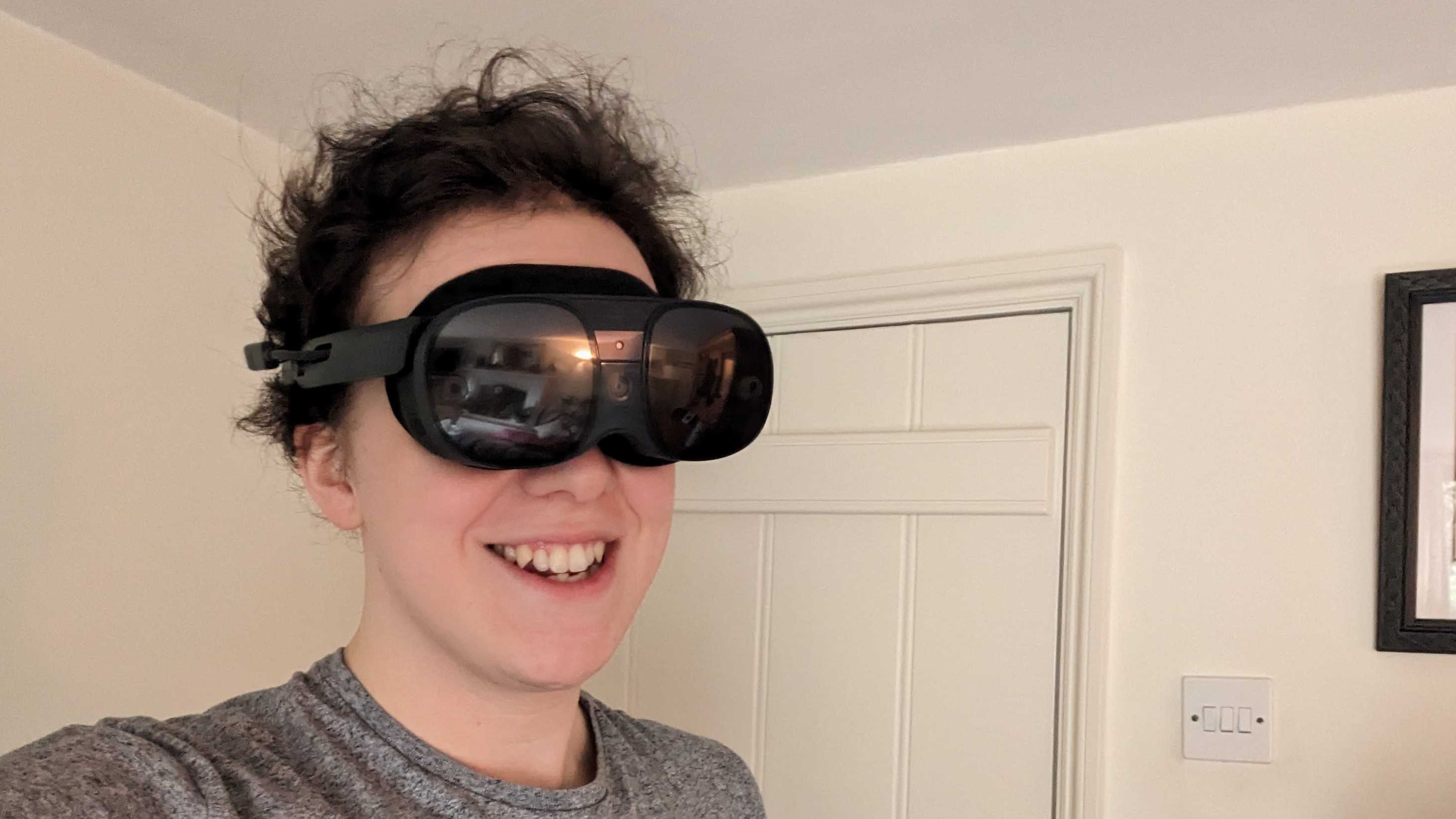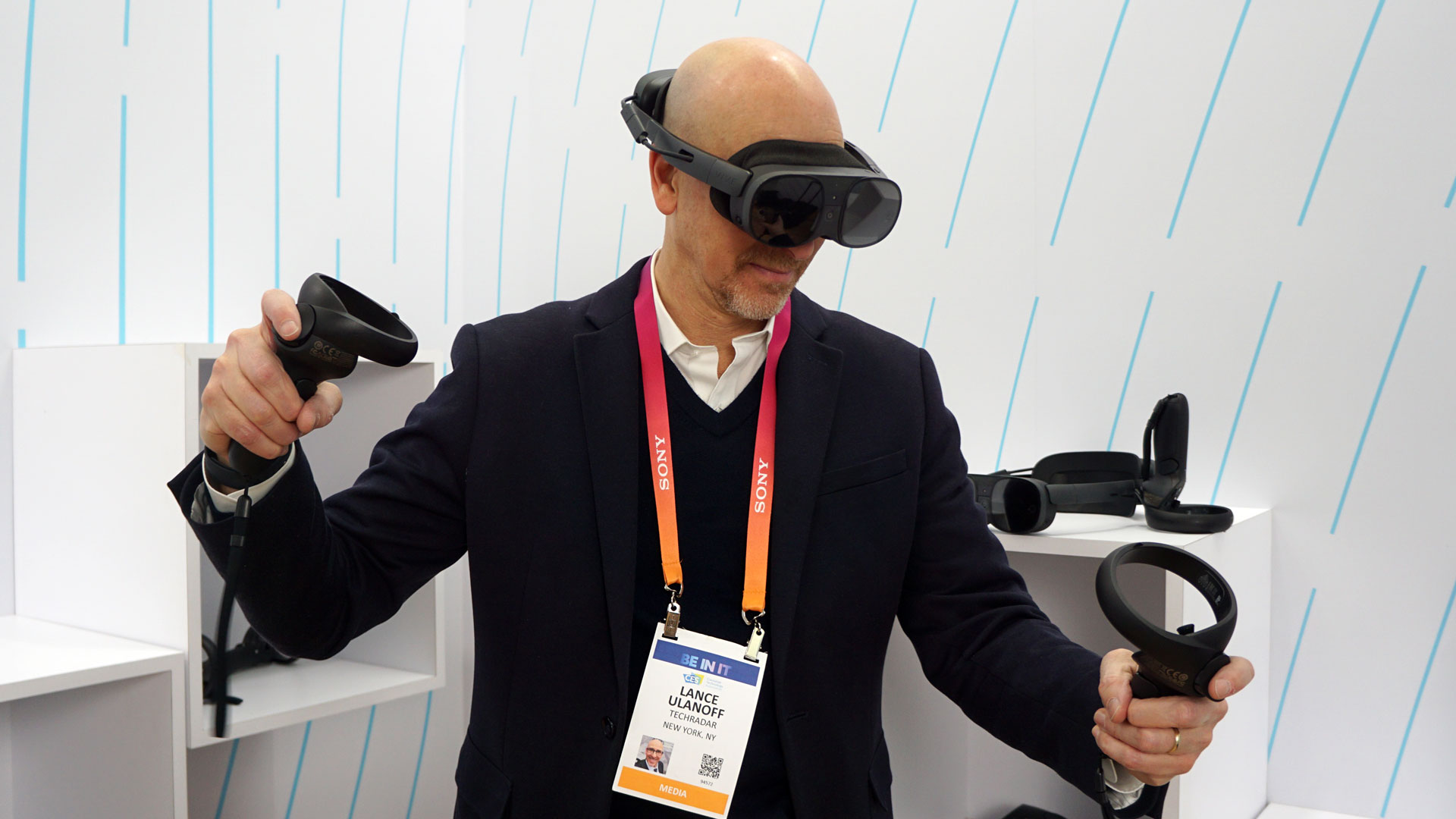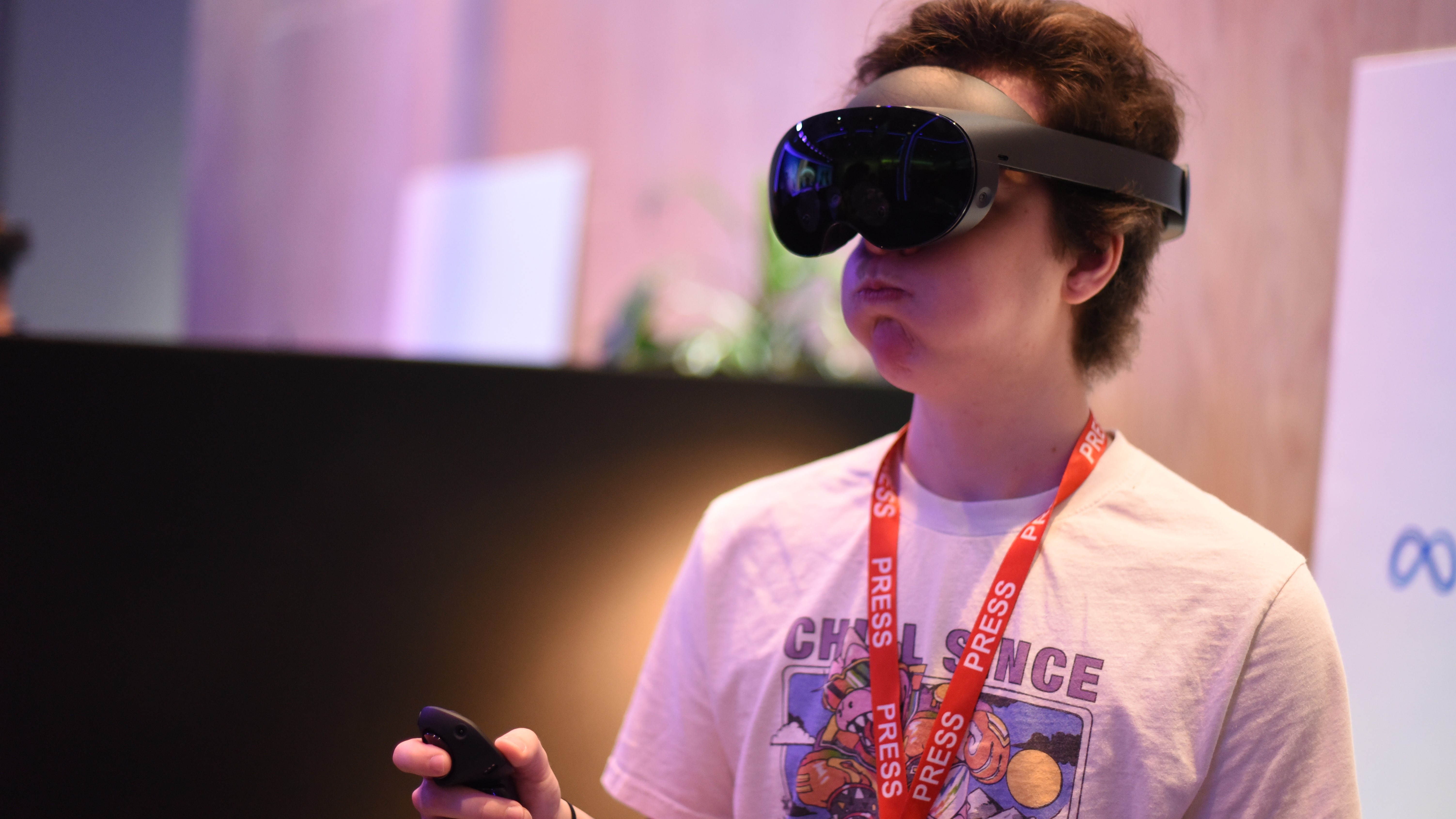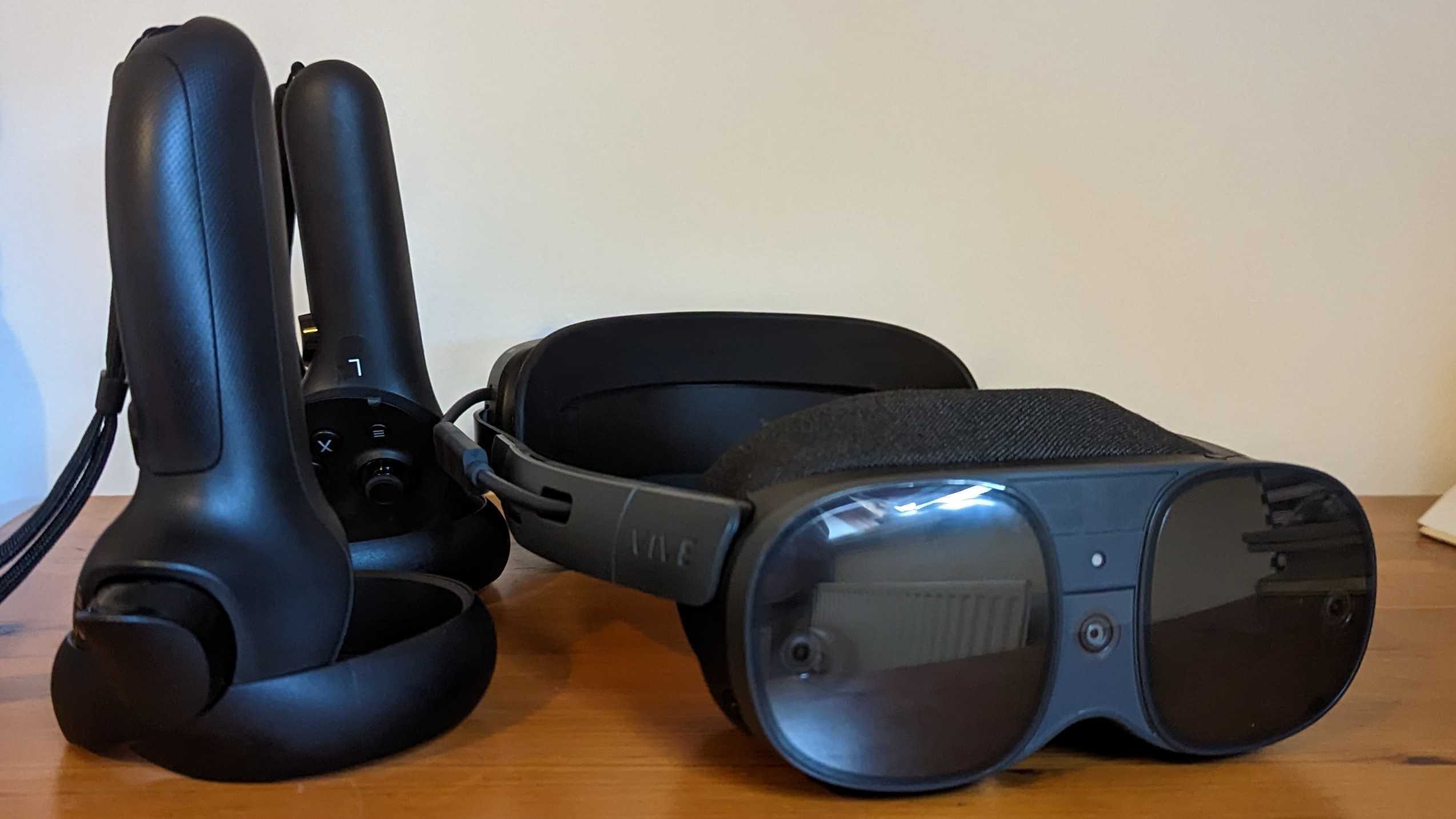I love the HTC Vive XR Elite, but the Meta Quest Pro beats it in 4 important ways
Opinion: Meta's best headset leaves new HTC headset in the dust

Are you after a premium VR headset that doesn’t need to be tethered to a PC? Then, you’ve probably considered options like the Meta Quest Pro and the new HTC Vive XR Elite, but which is better?
I’ve had the chance to try out the HTC Vive XR Elite and, so far, my first impressions are mixed. There are a couple of ways it beats the Meta Quest Pro, but many aspects of it are worse – leaving HTC’s headset feeling identity-less.
Here’s a rundown of my initial impression of how the headsets stack up. For a more in-depth look at the devices, check out our Meta Quest Pro review, and keep an eye out for the upcoming HTC Vive XR Elite review.
HTC Vive XR Elite wins: comfort
If you value comfort above all else, then it's near impossible to beat the HTC Vive XR Elite in the VR space.
For a start, the headset is pretty light, weighing in at 625g – landing it midway between the Quest Pro at 722g and the Oculus Quest 2 at 503g. However, thanks to its well-balanced design (the headset's weight is evenly distributed between the front face and the battery pack at the back of your head on the strap) you’d be forgiven for thinking the device is actually lighter than the front-heavy Quest 2.
If 625g is still too heavy for you, and you don’t mind being tethered to a power source, you can unclip the Vive XR Elite’s battery pack and wear it as a pair of glasses.

I wouldn't recommend the glasses mode for gaming, but if you’re at your desk and using VR to be productive, then the battery-less setup is the way to go. The only downside is that the Vive XR Elite glasses feel somewhat precarious like this, so be prepared for the odd “wbmcevjh” to punctuate your documents if it falls from your face onto the keyboard. That said, it hasn’t slipped from my face yet, so maybe I shouldn’t be so afraid that it'll fall.
Sign up for breaking news, reviews, opinion, top tech deals, and more.
HTC Vive XR Elite wins: mixed reality
Another win for the Vive XR Elite is the quality of its mixed reality. The cameras are so good you might forget you’re looking at the real world through a camera; the only clues being a slight distortion caused by its fish-eye lens and some difficulty reading screens.
The Meta Quest Pro’s mixed-reality quality is very grainy, so I’ve not seen much reason to use any app’s optional MR mode on it. On the Vive XR Elite, I’ve used its app's MR modes frequently.
That said, the HTC Vive XR Elite still suffers from the same general lack of unique MR use cases that Meta’s hardware struggles with. Most of the apps that use MR also offer perfectly good VR modes, so as cool as this feature is, it’s still more of a novelty than a fully fleshed-out tool.
HTC Vive XR Elite fails: specs
In terms of specs, the HTC Vive XR Elite is on par with or falls behind the Meta Quest Pro in almost every regard.

The visuals are the one area where HTC has the edge. The XR Elite boasts a 90Hz refresh rate LCD screen that affords a 1920 x 1920 pixel-per-eye resolution with a max 110-degree field of view. Meta’s Quest Pro LCD also has a 90Hz refresh rate but only offers 1800 x 1920 pixels per eye and a max 106-degree field of view.
In terms of power, the Vive XR Elite lags behind, using a regular Snapdragon XR2 rather than the upgraded XR2 Plus found in the Quest Pro. It also only provides 128GB of storage versus the Pro’s 256GB – though both devices have 12GB of RAM at their disposal.
HTC’s hardware also lacks some of the Quest Pro’s bells and whistles when it comes to face and eye tracking. HTC’s headset will only provide these features via an optional add-on that’ll launch sometime in the future (and no firm release date has been provided yet).
HTC Vive XR Elite fails: controllers
A VR headset allows you to peer into the metaverse and is undoubtedly the most important part of any virtual reality setup, but the second most vital aspect is the controllers that let you manipulate the virtual world. Without them, VR games and apps would simply be videos, rather than immersive interactive experiences.

Unfortunately, the Vive XR Elite doesn’t seem to appreciate the importance of its handsets, with the packed-in controllers being exceptionally lackluster. The plasticky finish is in stark contrast to the 'Elite' headset’s premium identity, and they don’t feel as ergonomic as alternatives offered by even Meta’s budget-friendly Quest 2. They also don’t seem to feature haptics – or the VR experiences I’ve tried so far don’t use them at all. Without this physical feedback, the immersive feeling of virtual worlds is easily broken.
In contrast, the Quest Pro’s controllers are superb. They’re weighty and premium feeling, and the realistic haptic feedback they provide helps convince you that your virtual interactions are real. The Quest Pro’s handsets also forgo the chunky tracking ring for cameras, which offers a more accurate tracking method and means you’re less likely to bump the handsets together – something I’ve done quite a bit with the Vive XR Elite.
HTC Vive XR Elite fails: Software
Another letdown is the XR Elite’s software. The Viveport selection doesn’t stack up against what’s available on Meta’s Quest store. Every great Viveport experience is also available on Quest (or Meta offers something similar that’s at least as good), while many of the best Quest games are missing from the Vive.
You can expand the Vive XR Elite’s library if you tether it to a PC – which unlocks games like Beat Saber through Steam or Walkabout Mini Golf through Viveport – but it’s annoying that these experiences are restricted to PC when Meta’s hardware offers these and other apps using just the headset.

HTC Vive XR Elite fails: price
When HTC announced the XR Elite and its cost, the pricing felt right. Yes, the headset was less technically capable than the Quest Pro in some regards, but it was cheaper, with HTC’s hardware coming in at $1,099 / £1,298.99 / AU$2,099.95.
However, Meta then played a rather cruel trick on HTC, slashing the Quest Pro’s price by roughly a third of its original down to $999.99 / £999.99 / AU$1,729.99.
This lower price point undercutting the Vive XR Elite leaves HTC’s device without an identity. When it was the cheaper headset the XR Elite seemed like a viable alternative to the Quest Pro, but now that it’s the higher-priced gadget, the XR Elite is clearly less value for money than Meta’s premium headset.
Are these premium headsets still too pricey for you? Check out our roundup of the best Meta Quest 2 deals and the best Meta Quest promo codes we can find right now.

Hamish is a Senior Staff Writer for TechRadar and you’ll see his name appearing on articles across nearly every topic on the site from smart home deals to speaker reviews to graphics card news and everything in between. He uses his broad range of knowledge to help explain the latest gadgets and if they’re a must-buy or a fad fueled by hype. Though his specialty is writing about everything going on in the world of virtual reality and augmented reality.